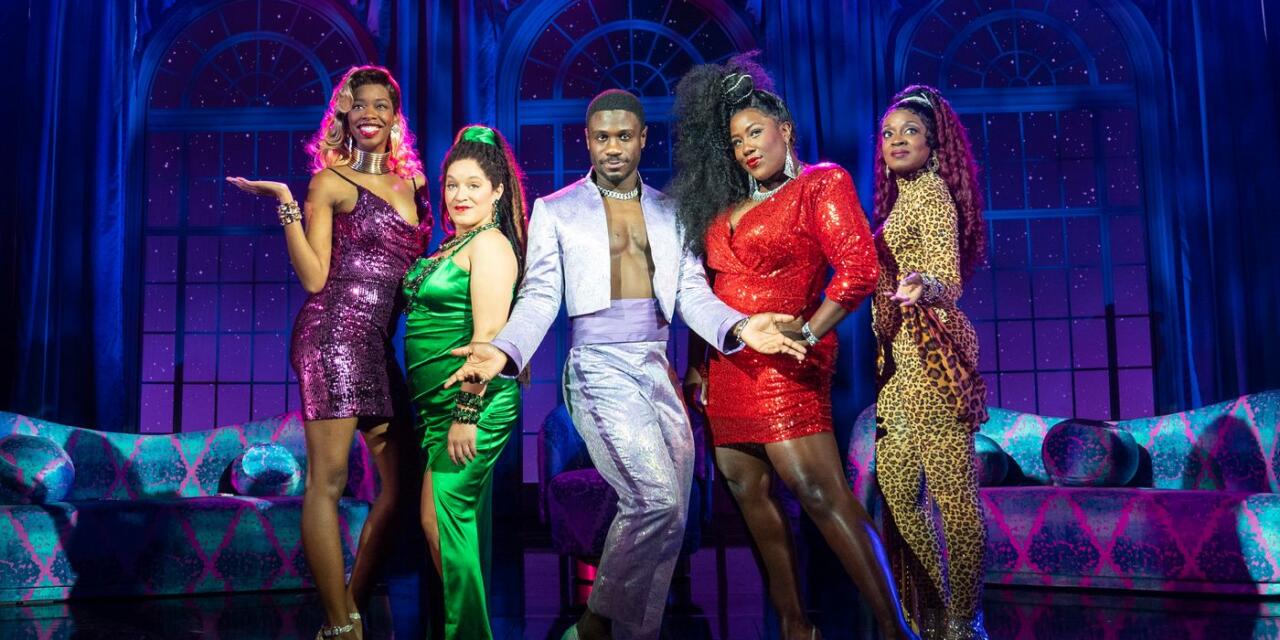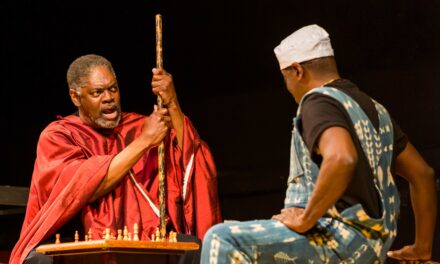The young playwright Jordan E. Cooper deserves kudos for writing the play Ain’t No Mo. He is also one of the actors in the show where he played the role of a drag queen character called “Peaches.” There are similarities in the writing style of Jordan Cooper and Tyler Perry. And Ain’t No Mo is an homage to Tyler Perry’s shows Meet the Browns, House of Payne, and the Madea franchise. Ain’t No Mo is a picaresque play loosely constructed on an incident-to-incident basis. The play tries to capture the spiritual journey of African Americans in the United States.
On the one hand, the play tried to tackle the serious issues of slavery, emancipation, freedom, and racism. And how these are connected to and affect Black life. We can see the characters in the play boarding a plane to immigrate to Africa. That is the most powerful moment in the play. Watching that scene reminds me of what occurred in the 18th and 19th centuries when freed enslaved Black people in America immigrated to Liberia and Sierra Leone in West Africa. In what is known as the “Back-to-Africa Movement.” Unfortunately, the author Jordan Cooper shifted the plot and characters of the play into buffoonery of slapstick comedies that look like we are watching Tyler Perry Madea and “The Real Housewives of Atlanta” reality tv show.
We see the drag queen character and other characters in the scene about talk shows and jailhouses. For example, in the talk show scene, one character is a transracial Black woman obsessed that she is Black. Even though she was born white. This character was conceived based on the true story of Rachel Dolezal, a white woman and former college professor who falsely identified herself as a Black woman. I do not know what Jordan Cooper was trying to achieve by having a “Rachel Dolezal” character because it adds no substance to the play. Other than making people laugh. The scene is flat and makes the play flow to be redundant. There have been many popular cultural impressions of Rachel Dolezal, from Late Night to the Netflix series. Finally, the author tried tackling every hot-button issue in the play, such as police brutality. The play started at a Black church with a stereotypical Black pastor speaking in the colorful language in front of congregations while delivering a eulogy or service to the coffin of a parishioner on the night of Barack Obama’s historic election. If I heard it right, the pastor character referred to Obama as a light-skinned N-word. The play’s characters are full of repeatedly name-dropping current political figures such as Barack Obama, Michelle Obama, and Kamala Harris. Again, these are unnecessary because they are neither protagonists nor participants as characters in the play. Overall, because of the jumping scene and shifting plots and storyline, the comedy Ain’t No Mo seems detached as the story unfolds; the characters never fully use their voice.
This post was written by the author in their personal capacity.The opinions expressed in this article are the author’s own and do not reflect the view of The Theatre Times, their staff or collaborators.
This post was written by Ademola Bello.
The views expressed here belong to the author and do not necessarily reflect our views and opinions.


















